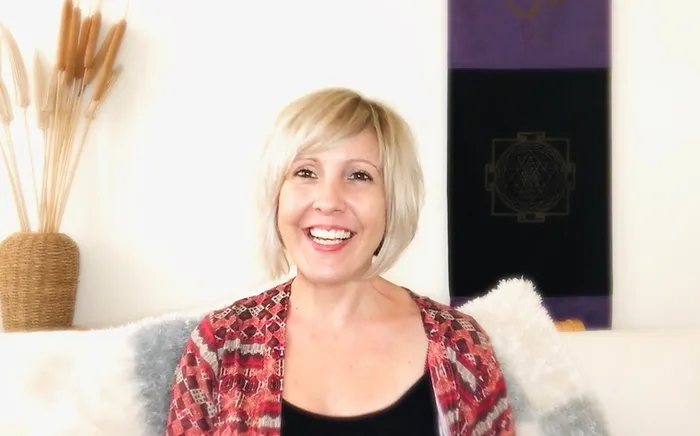Supporting Highly Sensitive People: Our Transpersonal and Integrative Approach
Sep 18, 2025
Many people move through life feeling things more deeply than others. This can mean feeling overwhelmed by noise, sensitive to conflict, or attuned to subtleties others miss. These are often the hallmarks of a Highly Sensitive Person (HSP), a trait identified by Dr Elaine Aron in the 1990s. For HSPs, sensitivity can feel like both a challenge and a gift: it brings empathy, intuition, and creativity, but also overstimulation, self-doubt, and burnout.
In recent years, various approaches designed to support HSPs have emerged. Among the most promising is a transpersonal and integrative approach to coaching, which goes beyond traditional coaching to embrace the full complexity of being human - the body, mind, spirit, and relationships.
What Does Transpersonal Mean?
Traditional coaching tends to focus on performance, goals, and personal development. A transpersonal lens widens the frame. It acknowledges that we are not just isolated individuals but part of something greater - with values, purpose, and even spiritual dimensions that shape our lives.
This perspective builds on psychology’s foundations, including Maslow’s hierarchy of needs. While many versions of the pyramid stop at self-actualisation, transpersonal coaching includes a higher level: self-transcendence. Here, meaning, purpose, and connection to something greater than the self come into focus.
For HSPs, this is especially important. Many highly sensitive people feel restless or unfulfilled if these deeper layers are ignored. They may crave purpose-driven work, a spiritual connection, or experiences of awe and wonder. Coaching validates these needs as central, not peripheral.
The Framework We Use With HSPs
Through research, lived experience, and years of working with sensitive clients, we’ve identified core domains that repeatedly show up in HSP coaching. These are both the pain points HSPs struggle with and the gifts that emerge when those struggles are transformed.
Here’s an overview of how we approach them:
1. Mindfulness & Nervous System Regulation
Highly sensitive nervous systems react quickly to stress. Without tools, this often leads to anxiety, rumination, or exhaustion. We teach grounding and mindfulness practices that expand the “window of tolerance.” With practice, sensitivity becomes resilience rather than fragility.
2. Identity & Self-Esteem
Many HSPs grew up hearing they were “too much” or “too sensitive.” Over time, this creates shame and self-doubt. Our work helps clients reclaim sensitivity as part of a healthy identity, fostering confidence and empowerment.
3. Boundaries
HSPs can often swing between two extremes: absorbing everyone’s emotions (porous boundaries) or building rigid walls (shutting others out). We support clients in developing healthy, flexible boundaries - knowing when to say yes, when to say no, and how to protect their energy without closing themselves off from connection.
4. Parts Work & Self-Compassion
We all have inner “parts” - critical voices, perfectionist drives, protective layers. HSPs tend to have particularly strong inner critics. We integrate parts work and compassion-based tools to help clients befriend these parts, soften self-judgment, and embody greater wholeness.
5. Communication
Many sensitive people struggle to voice their needs, fearing conflict or rejection. This silence can lead to stress and even physical symptoms. We help HSPs practice clear, confident communication, so their sensitivity becomes a bridge rather than a barrier in relationships.
6. Alignment with Purpose and Values
For HSPs, work that conflicts with personal values often leads to burnout. Fulfilment comes from careers and lifestyles that align with a sense of meaning. We guide clients in clarifying their values and designing lives rooted in authenticity.
7. Spiritual Connection & Shadow Work
Many HSPs report spiritual or peak experiences - moments of awe in nature, profound dreams, or even mystical encounters. These can be beautiful but also confusing if there’s no safe space to process them. Unlike mainstream approaches that may dismiss or pathologise these experiences, we validate and integrate them. At the same time, we explore the shadow - the aspects of self that are hidden, suppressed, or denied - ensuring growth is balanced and grounded.
How We Work in Practice
In our sessions, the emphasis is not only on what we do but on how we are being in the sessions; the held space. We call this cultivating a healing presence.
-
We practice deep listening without interruption or judgment.
-
We create a safe, grounded atmosphere where clients feel truly seen.
-
We use mindfulness and “open awareness” practices to co-regulate with clients, so they feel calm and resourced.
Rather than fixing or advising, we hold space for clients to discover their own insights and inner resources. Paradoxically, it is often this simple act of presence that leads to the most profound transformations.
Why This Approach Matters
The world often tells sensitive people to toughen up, tone it down, or fit in. At the Highly Sensitive Human Academy, we see sensitivity differently. It is not a flaw to be corrected, but a strength to be nurtured.
When HSPs learn to regulate their nervous systems, set healthy boundaries, and honour their deeper sense of purpose, their gifts shine:
-
Empathy becomes a source of connection.
-
Intuition becomes a guide for decision-making.
-
Creativity flourishes.
-
Leadership emerges from authenticity rather than force.
Our transpersonal and integrative approach ensures that no part of the sensitive experience is left out. We honour the body, the psyche, relationships, and the spirit. We validate both the struggles and the breakthroughs.
If you recognise yourself in these descriptions - feeling deeply, noticing subtleties, craving meaning - you may well be a highly sensitive person. We want you to know: you are not alone, and your sensitivity is not a weakness. Our work is dedicated to helping HSPs not just cope, but thrive - grounded, connected, and aligned with something greater. When sensitive people step into their full potential, they bring extraordinary gifts to the world and we all benefit.
About the Author

Jules De Vitto has a BSc in Psychology, MA in Education and MSc in Transpersonal Psychology, Consciousness and Spirituality and is an accredited transpersonal coach, trainer and experienced educator. She is the founder of the Highly Sensitive Human Academy — a central hub that offers courses, coaching, articles and a podcast for Highly Sensitive People. She helps those who identify with the traits of high sensitivity to navigate emotional overwhelm, step into their authentic power and align with their true purpose in life.
She is a published author and wrote one of a series of books on Resilience, Navigating Loss in a time of Crisis. Her research has also been published in the Transpersonal Coaching Psychology Journal and Journal of Consciousness, Spirituality, and Transpersonal Psychology.
In addition to her academic and coaching pursuits, Jules has spent years engaging in deep transformative healing work. She is a Reiki Master and Teacher and has completed Michael Harner’s Shamanic Practitioner Training through the Foundation of Shamanic Studies and a Grief Ritual Leadership Training with Francis Weller.
Jules is passionate about creating community for Highly Sensitive People and embracing the full spectrum of our emotional and sensory capacities rather than trying to ‘fix’ ourselves. Deepening the connection to our sensitivity enables us to open our hearts and form better relationships with ourselves, others and the world.
